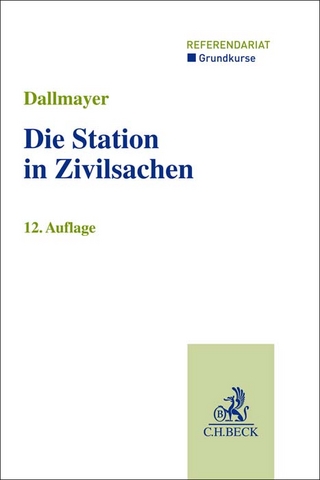
Precedents and Case-Based Reasoning in the European Court of Justice
Unfinished Business
Seiten
2016
Cambridge University Press (Verlag)
978-1-107-62358-3 (ISBN)
Cambridge University Press (Verlag)
978-1-107-62358-3 (ISBN)
Marc Jacob explains how the highest court of the European Union, the European Court of Justice, uses precedents and case-based reasoning in order to justify its decisions and shape the law that affects more than half a billion people.
Past cases are the European Court of Justice's most prominent tool in making and justifying the rulings and decisions which affect the everyday lives of more than half a billion people. Marc Jacob's detailed analysis of the use of precedents and case-based reasoning in the Court uses methods such as doctrinal scholarship, empirical research, institutional analysis, comparative law and legal theory in order to unravel and critique the how and why of the Court's precedent technique. In doing so, he moves the wider debate beyond received 'common law' versus 'civil law' figments and 'Eurosceptic' versus 'Euromantic' battle lines, and also provides a useful blueprint for assessing and comparing the case law practices of other dispute resolution bodies.
Past cases are the European Court of Justice's most prominent tool in making and justifying the rulings and decisions which affect the everyday lives of more than half a billion people. Marc Jacob's detailed analysis of the use of precedents and case-based reasoning in the Court uses methods such as doctrinal scholarship, empirical research, institutional analysis, comparative law and legal theory in order to unravel and critique the how and why of the Court's precedent technique. In doing so, he moves the wider debate beyond received 'common law' versus 'civil law' figments and 'Eurosceptic' versus 'Euromantic' battle lines, and also provides a useful blueprint for assessing and comparing the case law practices of other dispute resolution bodies.
Marc Jacob is a member of the international arbitration group of a leading international law firm, where he advises and represents sovereign and corporate entities in investment treaty disputes and cross-border commercial arbitrations. He is also a lecturer at the University of Tübingen, Germany.
1. Introduction; 2. Setting precedents: law made in Luxembourg; 3. Determining the essence of ECJ precedents; 4. Precedent application by the ECJ; 5. Avoiding ECJ precedents I: distinguishing; 6. Avoiding ECJ precedents II: departing; 7. ECJ precedents in context; 8. The normativity of ECJ precedents; 9. Conclusions and suggestions.
| Erscheinungsdatum | 19.04.2016 |
|---|---|
| Zusatzinfo | 6 Halftones, unspecified |
| Verlagsort | Cambridge |
| Sprache | englisch |
| Maße | 153 x 230 mm |
| Gewicht | 520 g |
| Themenwelt | Recht / Steuern ► Allgemeines / Lexika |
| Recht / Steuern ► EU / Internationales Recht | |
| Recht / Steuern ► Privatrecht / Bürgerliches Recht ► Zivilverfahrensrecht | |
| Sozialwissenschaften ► Politik / Verwaltung ► Europäische / Internationale Politik | |
| ISBN-10 | 1-107-62358-8 / 1107623588 |
| ISBN-13 | 978-1-107-62358-3 / 9781107623583 |
| Zustand | Neuware |
| Informationen gemäß Produktsicherheitsverordnung (GPSR) | |
| Haben Sie eine Frage zum Produkt? |
Mehr entdecken
aus dem Bereich
aus dem Bereich
mit Allgemeinem Gleichbehandlungsgesetz, Produkthaftungsgesetz, …
Buch | Softcover (2024)
dtv Verlagsgesellschaft
CHF 12,45
Grundkurs für Rechtsreferendare
Buch | Softcover (2023)
C.H.Beck (Verlag)
CHF 55,70


